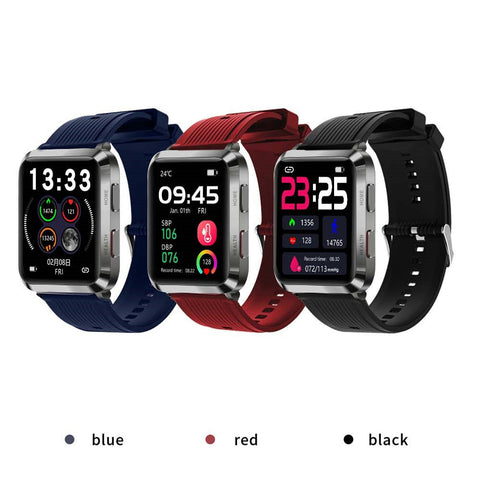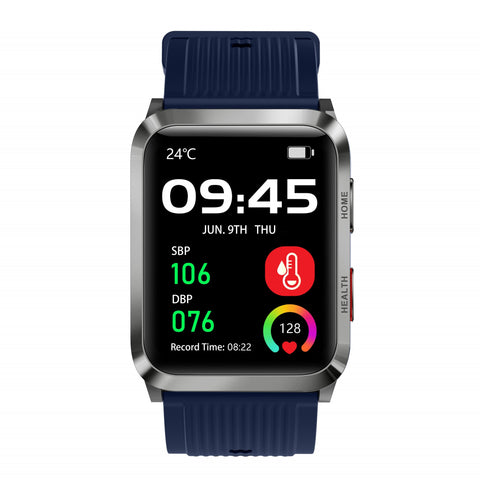Affordable Smart Watches
Poor sleep can have many causes, including stress, exercise, light, and daily activities, to name a few. However, if you have difficulty falling asleep, you might as well look for reasons in terms of eating habits.
British sleep expert Kevin Morgan said that although there is not much evidence that "eating well" can help sleep, eating poorly will definitely have "adverse effects" on sleep.
He sorted out the following five diet-related reasons that may affect sleep.

Meal irregularities may interfere with sleep
"Habitual rhythms keep sleep in sync," says Morgan. The body's internal clock is called a circadian rhythm, he said. Everyone's biological clock is unique to you and is something you take for granted.
Mealtimes are important "timing cues" to distinguish and stay in sync with day and night, Morgan explained. "If you disrupt your circadian rhythm, you will disrupt your sleep."
As for the specific dining time, there is no so-called unified time. But the important thing is to make yourself physically comfortable and to be regular. Of course, everyone eats from time to time, but Morgan says the rhythm usually returns within a day or two.
A Poor Diet May Affect Sleep
A nutrient-dense diet is good for sleep. Adults who were sleep deprived were more likely to have lower intakes of calcium, magnesium and vitamin D, the study found. Among those over 50, poor sleep was associated with lower intakes of vitamins C, D, E, and K.
What remains unclear is whether short sleep duration is caused by low intake, or that poor sleepers generally pay less attention to a balanced diet, or both.
When you eat, you're also feeding the trillions of bacteria in your gut, and studies have shown that having a diverse population of microbes in your gut can improve sleep for some people.
Therefore, Professor Spector, an expert in gut health at King's College London, and Dr. Rossi, a gut health doctor, have suggested that in order to increase the diversity of microorganisms in the gut, one should eat at least 30 different plant-based diets a week - such as a variety of nuts , beans, grains, seeds, spices, and fruits and vegetables.
It is best to follow the principle of eating more high-fiber foods and some probiotics, and eating less and not eating highly processed foods.
Drinking caffeinated beverages too late affects sleep
Half of the caffeine you consume will still be in your body after 5 or 6 hours; a quarter will remain after 10-12 hours.
Caffeine blocks receptors for adenosine, the chemical that makes you feel tired, which affects your ability to fall asleep.
Even while asleep, caffeine reduces restorative deep sleep, which "may make you feel less refreshed when you wake up the next morning," says sleep scientist Professor Walker.
It's worth noting that, along with tea, coffee, and energy drinks, chocolate also contains caffeine, although cocoa contains much less (caffeine) than coffee.
Alcohol does not help sleep
"Alcohol is perhaps one of the most misunderstood sleep aids," Walker said. Alcohol is a sedative, but sedation is very different from natural sleep.
Tranquilizers shut down the "brain cell firing" that occurs during normal deep sleep, where the brain produces a flood of brain waves, "with hundreds of thousands of brain cells in unbelievable coordination with each other," Walker explained.
Alcohol also blocks rapid eye movement sleep (REM), the period of dreaming that is "good for emotional and mental health, and even creativity." During sleep, alcohol also triggers "the nerves in the 'fight-or-flight' part of the nervous system," which can cause you to wake up more often during the night.
Any dietary modification that attempts to improve sleep is likely to be overshadowed by the effects of alcohol, Morgan said, though he added that very small amounts of alcohol may have little effect.
Drinking too much water before bed can also affect sleep
Healthy Eating Eatwell recommends that people drink 6-8 glasses of water/fluids per day. It's important to stay hydrated throughout the day, but if you're waking up frequently at night, it's best to reduce your water intake before bedtime.
Morgan says that whether beverages often seen as sleep aids -- such as hot milk or herbal teas (also known as herbal teas) -- actually improve your sleep usually depends on your individual habits.
"People who regularly drink warm milk before bed may not sleep well if they are not given it, but those who do not drink it may also affect their sleep if they drink it," Morgan said.
Chamomile tea has been shown to help with anxiety, insomnia, and several other sleep-related problems, and you can also take chamomile pills if you don't want to drink tea at night.

In order to better improve the quality of sleep, you must first understand your sleep situation. BP Smartwatch monitors sleep in real time and feeds back sleep reports in time to make your sleep status digital.








